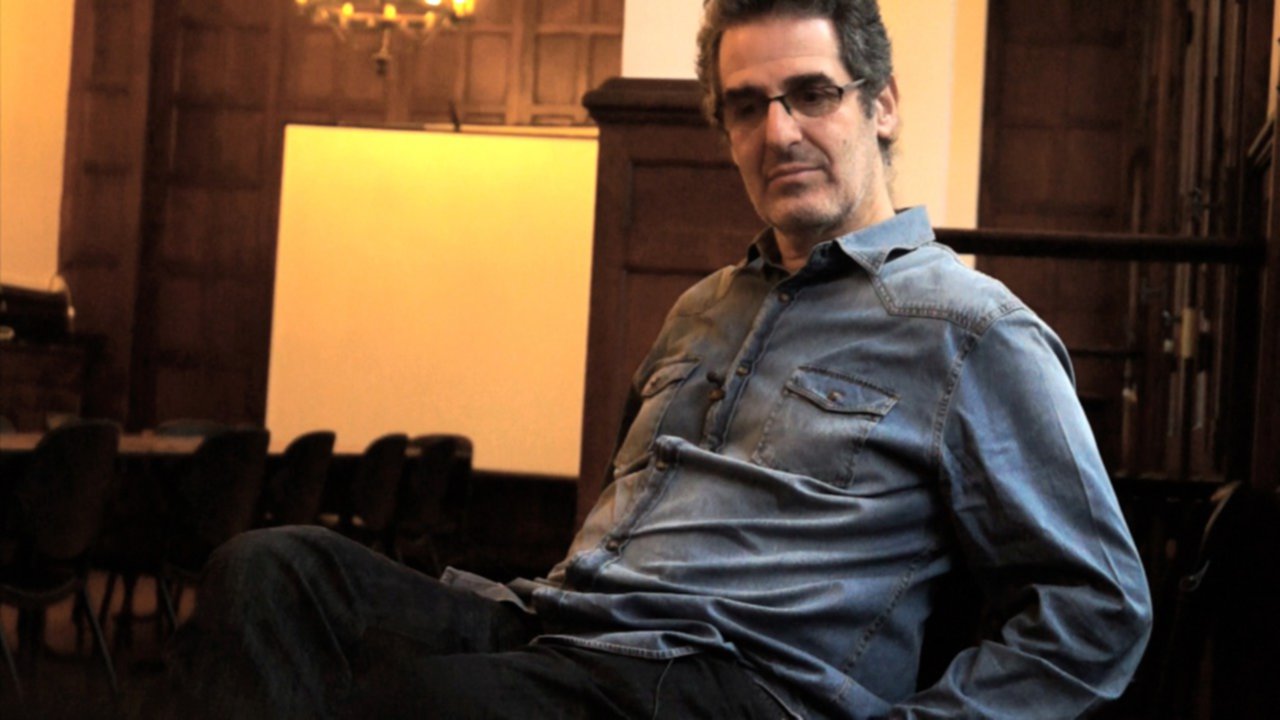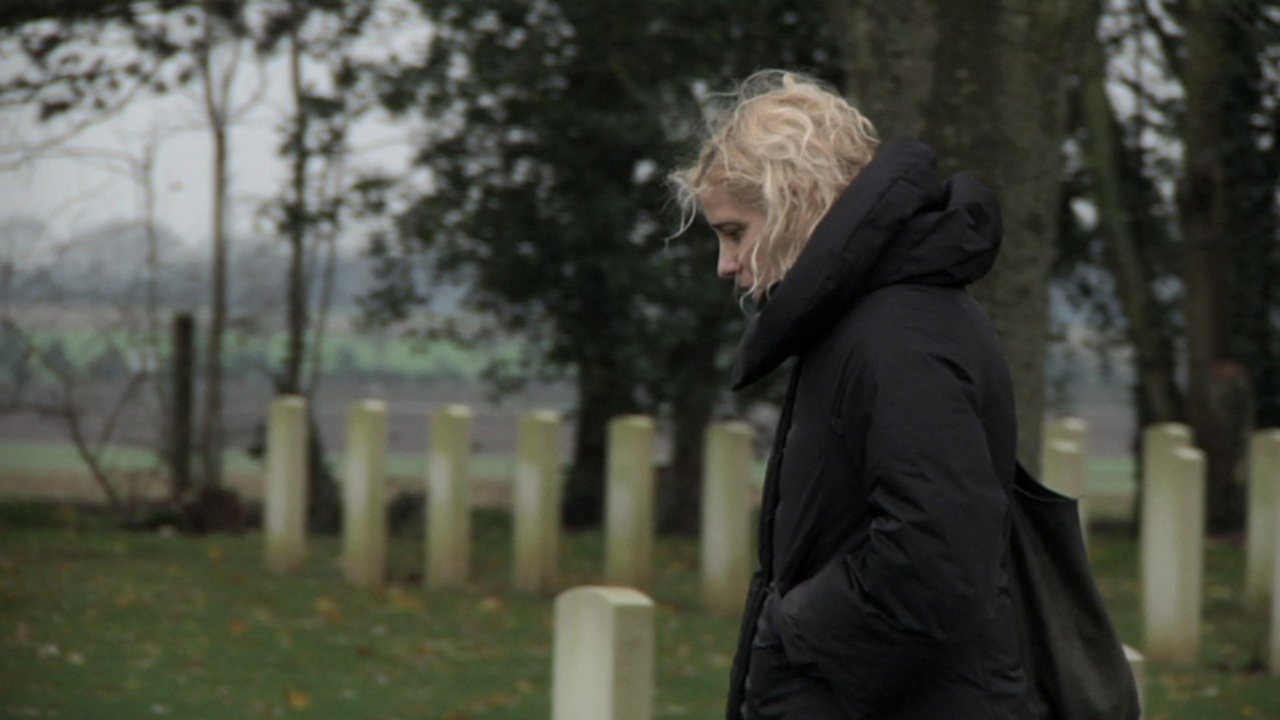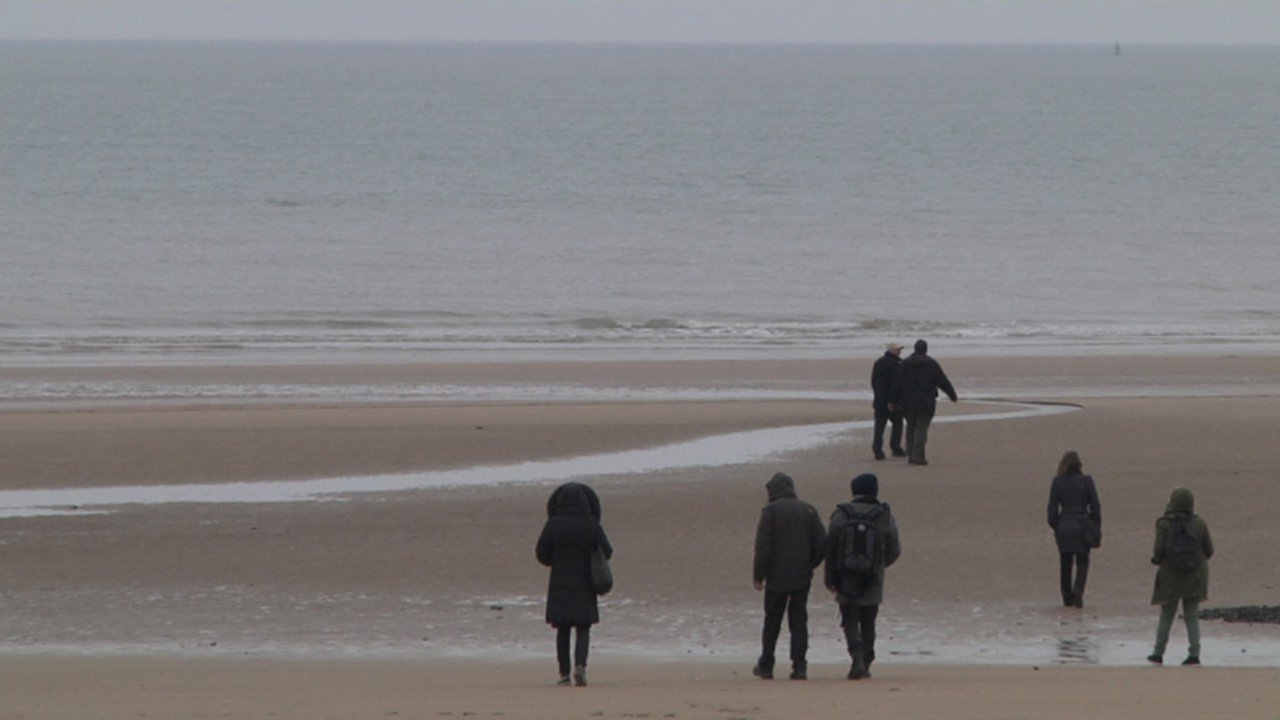MARK MAZOWER
A conversation with Mark Mazower for the documentary Guns! Guns! Guns! – 20th century shipwrecks
Syllas TzoumerkasWhat is a definition of history that you would find satisfying today?
Mark Mazower I always think of history as a kind of conversation that the past has with the present and the present has with the past. We live in the present in times that are constantly changing and we are always putting questions to the past, trying to get some answers to understand where we are. That would be my defintion.


History it’s about truth but it’s also about understanding. It’s about aiming for a truth that will always be slightly out of reach, because history is not like archaeology. History is not like digging down deep into the earth, and then you find it and you bring it up to the light and you measure it and if your measurements are correct, your history is correct and if your measurements are wrong, your history is wrong. History is not like that. You cannot falsify history, you can’t make it up. History is not fiction. But because history is a conversation, what we want from history, what we need from it, is always changing as our circumstances change. Thirty years ago, what we wanted to know from history was, for instance, how one class related to another class in society. Fifteen years ago, what we wanted to know – twenty years perhaps, the time of the war in Yugoslavia – was about how one ethnic group related to another group. We wanted to know about ethnicity and race, somehow we didn’t need to know about class any more. Today, we all want to know about class again. So, we have this constant conversation. And therefore, the subject of history, our approach on history is always changing. That’s my view.
Do you ever think of history as something more definite and accessible compared to the present? Do you feel it like something more stable?
It is not completely stable, precisely like the present is not stable. Because it exists in relationship to the present. And I’ll say it again: that doesn’t mean that there is no real past. It doesn’t mean that the historian can make things up. So when you write history you try to find what really happened. You try to find out what mattered in what really happened. And in what mattered, is where the interpretation comes in. And that changes. What matters for us today is entirely different to what mattered for people forty years ago. And it should be. If it was exactly the same, there would have been no transformation in society, no aging.
Which one do you think is the biggest misconception people have about how historical events occur?
I suppose the big difference is between people who think there must be one cause of an event, one reason why something happened, and if we can find it we really understand it. The falling rate of profit, perhaps. There will be many versions of this view. The difference will be between the people who think there is one cause and the people who think there are many, several causes. The question for us is what we’re looking for when we explain an event, when we want to understand why something had to happen. The historians will argue about this forever. I think myself that it’s a combination of two models. One is a kind of scientific model. With a scentific understanding of what a cause is. You explain why the proceeding set of events had to in some way give rise to what happened. Except that in human affairs, there’s very rarely necessity. Because there’s hugely free will. The other version of explaining events is that you describe it in such a way, that when your reader reads your description they say ‘ah, now I understand’. You give them a kind of total view. That’s a very carefully selected sort of view. You give them a kind of empathy. I think we have both these models in history, and sometimes they can be combined and some of the best history is when they are combined.
Dealing not with the way historians understand history, but with the way people understand history, do you think there are some factors that tend to be neglected?


People neglect the boring to the spectacular. They want to focus on a spectacular act of violence. They want to focus on a spectacular act of bravery. A spectacular act of shamefulness. They don’t want to focus on the tax policy of the regime in that time, for instance. Or they don’t want to focus on the condition of boats, that may in fact stopped someone from travelling that day. So if there is a tendency, is to go for the spectacular over the mundane. And the challenge if you are a writer of history is to somehow show how the boring can be spectacular. How something that looks very dull or very trivial can in fact be an enormous cause of something. The change in the size of the family. The sudden obligation imposed by the state to send your children to school, so the children can no longer work for you at the age of six or seven. The effect of that was obviously very very big. So, one has to dig down to the boring things. Why is it that the history of taxation never made it to the best-seller lists? Whereas a history of nazi crimes is always up there? But you could argue that the history of taxation is as important in understanding where we are today.
The same thing happens to drama. A hero comes out from a dull way of life. What is dull in a character is much more important than the moment of the excitement.
The dullness is the milieu. So how do we describe the milieu? How do we describe not Byron going off to Greece, but Byron having coffee every morning in London with somebody else, the milieu that made him go to Greece. That interests me.
Another aspect of dullness is that dullness is pressure.
There’s also the romantic view of this which is interesting. The romantic hero is the one who felt the dullness of bourgeois life and had to smash it, had to escape it, and so the dullness is what you escape from.
That’s the romantic aspect.
Yes, that’s the romantic aspect. But dullness is another way of talking about the things everybody takes for granted. And they may be really important things. I’ll give you an example: we don’t yet have an anthropology of the nazi values. What did your everyday German in the 3rd reich think was good and think was wrong. In a very dull way. If you understand that, then you would understand much better what happened with the war. But we don’t yet have that. What we have is kind of story of demons and the devil. That would be a very precise example.
What one should be cautious with, when he deals with the memory of others?
Historians are naturally argumentative. They like argument. The whole of history is one long, long argument. So you have to understand what an argument is. To my mind, the best argument is one that is mutually respected. That is to say ‘I listen to your point of view’. Of course I listen to your point of view with interest for many reasons. One is if you’ve lived through these events. That means you’re not only having an argument with me, but you’re providing me with some insights, some information, some mentality that I don’t have. You have to respect that. But I would listen with interest to your point of view of historical events even if you haven’t lived through it. And I might agree with your version over someone’s who has lived through it. Sometimes people say ‘that was very interesting, but I’ve lived through this, and it wasn’t like this’. And the answer for that is maybe it wasn’t like that for you, but it may have been for other people. Or the answer may be: maybe you don’t really remember that well. And what we also have to discuss is the problem of memory, that’s another interesting issue to be treated with respect. The respect should be absolute. Personally I don’t think you can disregard or disdain the views of those who disagree with you. But you’ve got to end up with a position of your own, because you’re there anyway. Whether you like it or not.
Stella Adler says that the most difficult action for actor to play is ‘to argument’. People call it ‘the lost art of conversation’.
For history this is absolutely fundamental. You’re having an argument with the sources, you’re having an argument with other historians.
People get easily frustrated if you challenge their historical point of view. How do you deal with that? People who get offended?
I think you have to assume that that will happen. And in a way if you’re a historian, it’s not a bad thing. Because it’s a sign that people still take that art seriously. Much worse would be to live in a kind of a Tony Blair-like universe where nobody really cared about past at all. Or they could just happily rewrite the past at any moment. So, at least when people get angry, it’s because they care about the past, they want to hear. People hold on to their past. The past becomes a deep part of who you are. We grew up in this world all of us. And we want to be proud of our past. It’s very difficult to find pride when your interpretation of the past is forced suddenly to change.
Is it only a matter of pride? Or of what people call ‘identity’?
I don’t like the word identity.
Me neither.
It implies something more fixed. And we want it perhaps to be fixed. But I don’t think it’s very fixed. So in fact this holding on to the past, it’s not a holding on to the real past, it’s a holding on to a memory. The memory changes. That’s exactly why if someone comes up to me and says ‘you are completely wrong about what happened at the Katochi [the Greek word for the German occupation during WWII], I was in Karpenisi and I can tell you it was not like that’, you have to find out was it really not like that or does he now remember something a little bit different because of the man he is or the woman she is at the age of seventy-seven is actually a rather different person from the boy or the girl or whatever it was. We know enough about how memory works to worry about that.
Thanks for the ‘identity’ answer. That word can drive people crazy.
If you had to sum-up the legacy of the 20th century what would you say? As a summary?
I think the legacy of the 20th century is that we all live in cities. In 1900 most of the population did not live in cities. Today most of the world’s population lives in cities. What does that mean? People organized in large anarchic clusters, surrounded by concrete, accustomed to very rapid change, There is the problem of noise. Which was just beginning to be a problem in 1900. But people live in a very different world of sound. And of course they live in a very different relationship to the past. Because cities generate pasts in a quite different way. Political power is exercised over cities sometimes more directly, sometimes less directly, but in a very different way than it can be exercised over large areas of countryside where the roads are very bad. So, if you ask me, I think the legacy is we live in cities and when things go really bad we think of getting out of them. Turn the clock back. And we dream of returning to the garden of Eden. And it’s a sign of how far away we are from the garden of Eden that we forgot about the snake, and we forgot of about all the bad things about living in the countryside, that were why people were desperate to get out of it and make money. There’s of course more to be said about the 20th century.
What story, which aspect of the 20th century still has the biggest impact on you?
Well, the story of how to make capitalism more humane and more just. For me that’s the central story and that remains the central story. And in that sense we’re still part of the same stream of history. Nothing has much changed. In fact, it’s why so many of the arguments today, are really arguments about the 1920s or the 1930s, it’s all about how people tackled the great depression or why Weimar democracy collapsed. Because we’re actually still in it: we’re still in this long 20th century with its central problematic of how could we make capitalism more humane, more socially just or equal. We’re not doing very well at this point…
20th century has been a century full of atrocity, violence, stupidity. How someone doesn’t lose his sense of humanity? You read, you study, you deal with so many corpses of people and so much stupidity around them. How do you deal with that?
Well I think that for a long time, one felt that this was mostly in the past. The war, the holocaust, the gulag, this was mostly in the past, and terrible things went on but people had learned some lessons. So, there is a kind of distancing. You’re describing a world that was gone by, and been replaced by something else. I think that was one answer to your question. It would have felt different if you write the history of mass killing in the middle of mass killing. It doesn’t feel like that. Well, something has perhaps changed in the air, that’s true. It seems more urgent today. Less antiquarian. Another more personal answer would be I don’t think you can end up with a terribly high opinion of human nature if you study these things for very long, because you see what horrible things terribly nice people were capable of doing. And you see in perticular where the lack of imagination actually can get you. For something very simple. Just a lack of imagination can explain a lot in what people do. They don’t have to be monsters. So, you have to be lucky and you have to have some nice people around you.
Paris, January 2013.